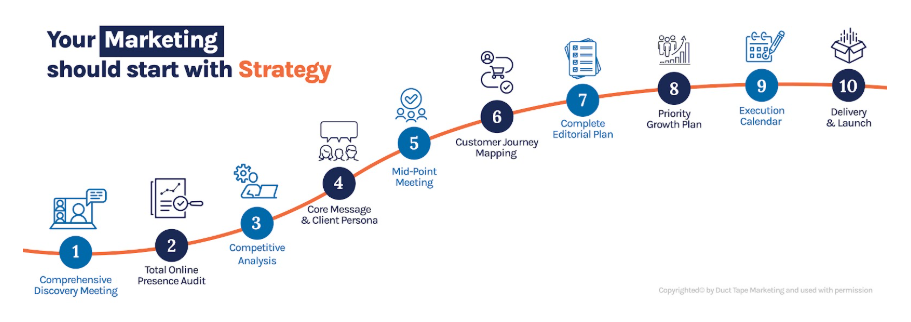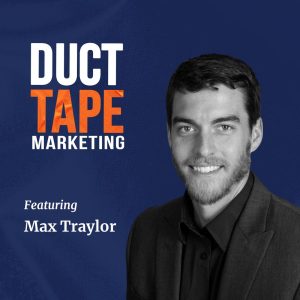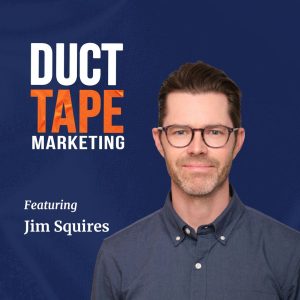The 7 Roles Every Small Business Owner and How to Manage Them written by Jordan E read more at Duct Tape Marketing
Ever feel like running your business is a never-ending game of keeping plates spinning? I remember watching a circus performer as a kid, keeping seven or eight plates balanced on tall sticks. Just when one would start to wobble, he’d rush over to give it a quick spin, only to dash to the next one teetering on the edge of disaster.
That’s exactly what running a small business feels like, right? Unless you’ve got an army of employees, chances are you’re juggling multiple roles every day—some better than others. So, let’s break down these seven roles and talk about how you can keep those plates spinning without losing your sanity.
1. The CEO (a.k.a. The Visionary)
Someone’s got to set the direction, and spoiler alert—it’s you. But let’s be real: in small businesses, the CEO role often gets pushed to the side. You’re so busy working in the business that you forget to work on the business.
Solution? Time-blocking. Set aside a couple of hours a week—call it your “big thinking time.” No emails, no client calls, just you mapping out where you want to be a year from now. If you don’t do it, no one else will.
2. The Salesperson (a.k.a. The Rainmaker)
No one’s bringing in the revenue but you. You’re out there generating leads, following up, and closing deals. And let’s be honest, if you stop selling, everything else grinds to a halt.
Solution? Automate your follow-ups. Tools like ActiveCampaign and HubSpot can send nurture emails, move prospects through a pipeline, and remind you when it’s time to follow up personally. Set up a system once, and let it work for you.
3. The Strategist (a.k.a. The Master Planner)
Marketing without strategy is just guessing.
Solution: Follow a proven framework. Our Strategy First framework provides a repeatable process to ensure marketing efforts are structured and scalable.
What is Strategy First? Strategy First is a structured marketing approach that helps businesses attract the right clients, differentiate themselves, and start charging a premium. It includes a full audit of your online presence, competitive landscape analysis, ideal client persona development, and a customer journey map using our proprietary Marketing Hourglass methodology. This process, completed in 30-45 days with three 1-on-1 meetings, delivers a clear marketing roadmap that businesses can implement themselves or with continued support from a Fractional CMO. Learn more about Strategy First process.

4. The Project Manager (a.k.a. The Organizer of Chaos)
Once you’ve got clients and a strategy, now you’ve got to get the work done. Campaigns, vendors, deliverables—it all needs to be managed.
Solution? Project management tools like Asana, Monday (what we use here at DTM), or ClickUp. These keep everything organized and show clients the progress you’re making without a million email check-ins.
5. The Client Manager (a.k.a. The Relationship Keeper)
If you want long-term clients (and you do), you’ve got to nurture those relationships. Regular check-ins, reports, and proving your value—week in, week out.
Solution? AI-powered reporting. Tools like SEMrush and Google Analytics spit out tons of data, but AI can help translate that into meaningful insights for your clients. Use it to show why what you’re doing matters.
6. The Marketer (a.k.a. The One Who Always Puts Clients First)
Raise your hand if you’ve ever put your own marketing on the back burner because client work comes first. Yeah, we’ve all been there.
Solution? Treat your business like a client. Assign yourself a project manager, use AI tools to repurpose content (e.g., take a blog post and turn it into LinkedIn snippets), and schedule social posts in bulk. Your future self will thank you.
7. The Accountant (a.k.a. The One Who Hates This Part)
Invoicing, bookkeeping, taxes—it’s got to get done, but that doesn’t mean you have to do it.
Solution? Outsource it. If you’re spending hours wrestling with numbers, you’re losing time you could be using to grow your business. Hire a bookkeeper and let them handle it.
How to Escape the Chaos
So, how do you stop feeling like a circus act?
- Prioritize the most important roles. Sales, strategy, and client management should top the list.
- Automate what you can. Email sequences, project management, reporting—there’s a tool for everything.
- Delegate and outsource. Hire a VA, a bookkeeper, or a marketing agency. Free up your time for the work that actually moves the needle.
At the end of the day, you don’t have to keep spinning plates forever. Build systems, get support, and create a business that works for you—not one that runs you into the ground.
Need help creating a system that works? Check out our Strategy First program at Duct Tape Marketing. We’ve built a repeatable framework that helps agencies and consultants scale without the chaos.

 In this episode of the
In this episode of the 